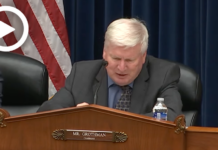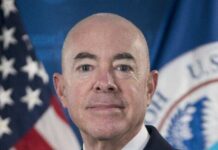Though Congress has repeatedly denied laws to give needy families government-subsidized diapers—in addition to free medical care and food—the Biden administration is quietly allocating millions of dollars to the cause originally funded by the Obama administration to end a pandemic of “diaper disparity.” A Health and Human Services (HHS) division known as Administration for Children and Families (ACF) Office of Community Services (OCS) is doling out $8 million to provide diapers and diapering supplies through government distribution programs for families with low incomes. The program is officially known as Diaper Distribution Demonstration and Research Pilot (DDDRP) and it aims to provide diapers on a consistent basis. “One in three families in the U.S. with diaper-age children report having unmet diaper need,” according to the grant announcement. “Diaper need is largely defined as the lack of a sufficient supply of diapers to keep an infant/toddler clean, dry, and healthy. Infrequent diaper changes can lead to diaper rashes and urinary tract infections, compromising the health and well-being of infants and toddlers.”
The lengthy document cites random studies on the impacts of diaper need, which of course, “disproportionately impacts families with low incomes and can have long-term, multigenerational effects,” according to the government. Besides the detrimental health effects on the infant, the studies referenced by HHS found associations between diaper need and parental stress, which can have negative, compounding effects on the health and well-being of both caregivers and children. As an example, the agency writes that childcare providers require an adequate supply of diapers yet many low-income families cannot afford a consistent supply. “Therefore, diaper need can prevent infants and toddlers from being in early care settings, and further exacerbate the impact of poverty by impeding caregivers’ ability to attend school, training programs, and/or work consistently,” according to the health agency. Another study used by HHS to make its case found that more than half of parents who rely on childcare have missed work because of an inadequate supply of diapers, which means “access to diapers represents both a public health concern for the well-being of children and a source of economic stress for parents and caretakers.”
The goal of the $8 million DDDRP is to maximize diaper distribution programs so low-income and “diverse” families can receive taxpayer-funded diapers on a consistent basis. This will solve many problems, according to HHS. For instance, the agency claims the great American diaper giveaway will lower anxiety and depression among parents, decrease rates of missed days for children in childcare, reduce family health issues by improving the health of caretakers and children, increase workforce participation and reduce economic stress by cutting unemployment. “Other programs providing social supports to low-income families provide targeted benefits for food assistance, housing, healthcare, etc., but none of them provide funding for diapers or diapering supplies,” the HHS document states, adding that “ongoing diaper support” improves economic stability, reduces familial stress, and increases parental self-sufficiency.
The push for government subsidized diapers has been met with powerful congressional resistance for years. Back in 2016, after Congress twice rejected laws to give needy families free diapers, President Obama allocated $10 million in taxpayer money to the cause. At the time the White House promoted the initiative as essential to eradicate a national “diaper divide” and the stated goal was to abolish “diaper disparity” by expanding access for American’s poorest families. Obama’s White House Domestic Policy Director, Cecilia Muñoz, spearheaded the initiative, asserting diapers are imperative to babies’ health and “no family should have to choose between keeping their babies healthy and keeping the lights or heat on.” Months earlier Congress resoundingly rejected the second measure (Hygiene Assistance for Families of Infants and Toddlers Act) in four years to grant poor families government-subsidized diapers. Years earlier similar legislation (Diaper Investment and Aid to Promote Economic Recovery Act) also got slammed in Congress.
More recently legislation to provide free diapers has also failed to advance in Congress. The latest, End Diaper Need Act of 2021, has stalled in both the House and Senate since early last year. The measure aims to appropriate $200 million annually to provide diapers and diapering supplies for low-income families.















